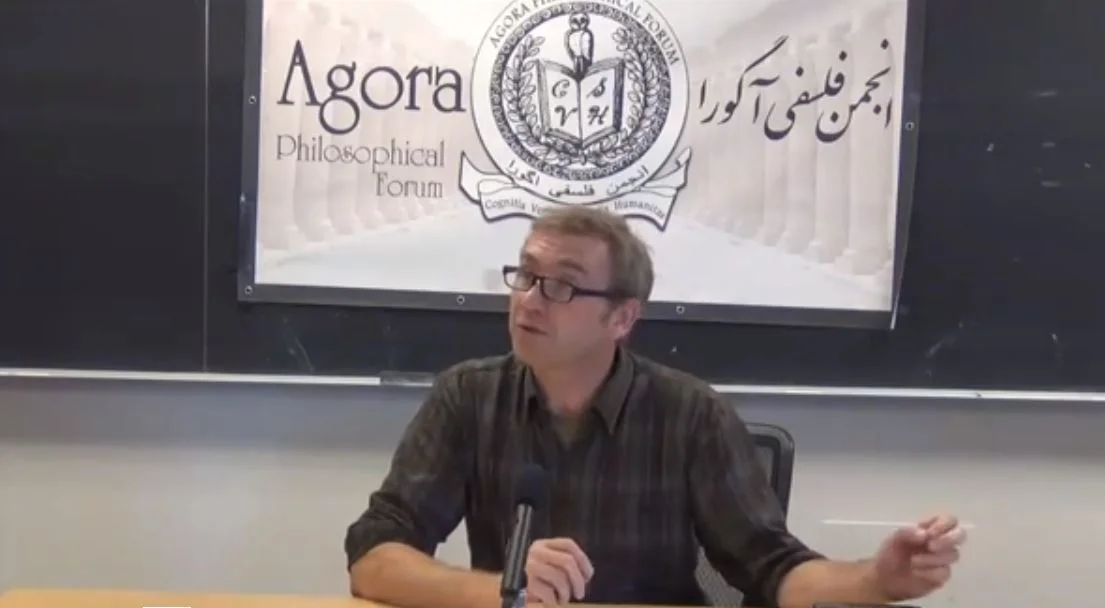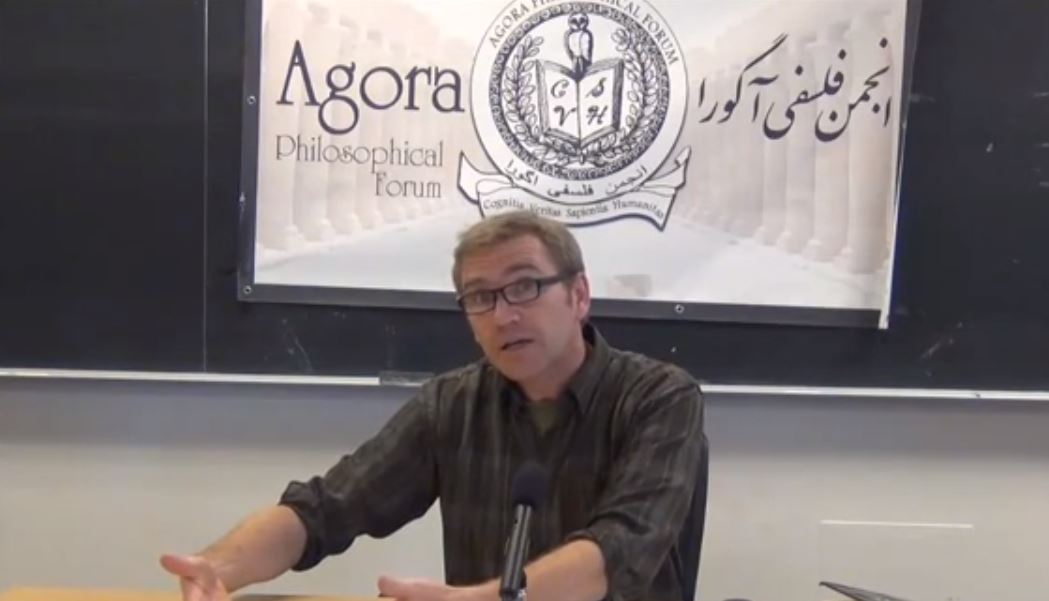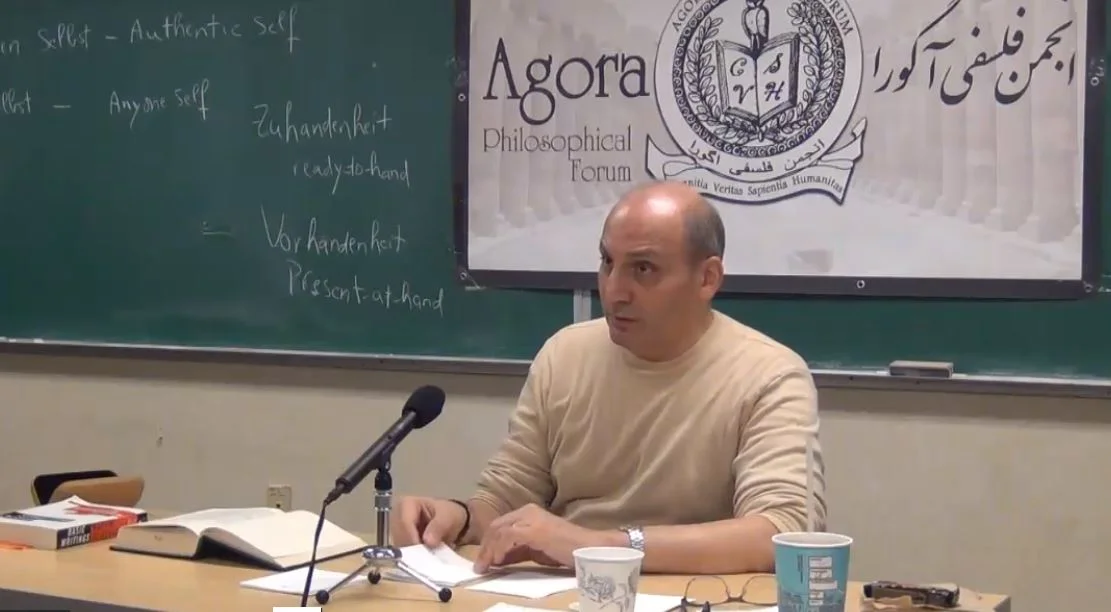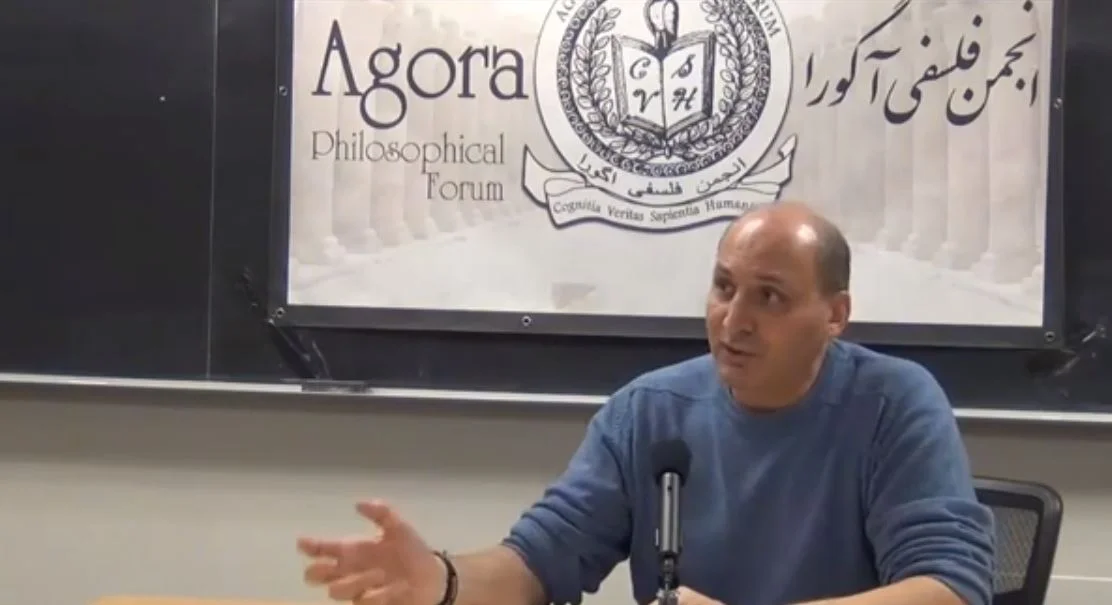نشست 9 تا 13
Session 9: Heidegger on "They"and Call of Conscience
11 October 2014
with John Russon
Recommended Reading: Heidegger, Being and Time, section 27 (on the “they”) and sections 55, 56 and 60 (on conscience)
Link to Heidegger's entire book "Being and Time" translated by Macquarrie and Robinson
Guiding Questions:
1. Heidegger argues that, for the most part, we are not self-possessed individuals, but we exist, rather, as a “they-self.” What does he mean by the “they” and how does this challenge our typical ways of understanding ourselves? What are the ethical implications of this notion?
2. Heidegger claims that the experience of conscience offers us a transformative relationship to our situation. What are the fundamental aspects to the “call of conscience” that Heidegger emphasizes, and how do they contrast with the defining experiences of the “they”? How does the experience of conscience open up transformative possibilities for us?
John explains about his talk:
Heidegger’s phenomenological description of our self-experience challenges many of the ways that we commonly understand ourselves. Typically, we think of ourselves as individuals who are self-possessed and self-defined. In his analysis of the “they,” though, Heidegger shows that we are fundamentally not self-possessed; on the contrary, our typical condition is to be caught up in the sway of a kind of indeterminate public identity, and an identity, furthermore, that keeps us from taking responsibility for ourselves. Through his analysis of the experience of conscience, Heidegger identifies the possibility for a transformative relationship to ourselves in which we embrace the possibility for a kind of self-responsibility even as we experience ourselves as answering to imperatives that come to us from beyond ourselves. We will investigate the experiences of the “they” and conscience in order to understand more fully Heidegger’s phenomenological project and also to appreciate more deeply what it means for us to take responsibility for our own lives.
Lecture
Q&A
نشست 10: هستی و زمان هایدگر
تاریخ: 19 اکتبر 2014
Recommended Reading: Heidegger. Building Dwelling Thinking
سخنرانی
پرسش و پاسخ
نشست 11: هستی و زمان هایدگر
تاریخ جلسه: 25 اکتبر 2014
Recommended Reading: Heidegger's Sein und Zeit for this session
See complete book here: Heidegger's Being and Time, Translated by Joan Stambaugh
سخنرانی
پرسش و پاسخ
نشست 12: زیبا شناسی و امکان هنر: از قالب بندی تا قالب شکنی
تاریخ: 1 نوابر 2014
همراه با مجتبی مصطفایی
Recommended Reading: Heidegger's The origin of the work of art
سخنرانی
پرسش و پاسخ
نشست 13: هستی و زمان هایدگر
تاریخ: 8 نوامبر 2014
Recommended Reading: Heidegger's Sein und Zeit for this session
See complete book here: Heidegger's Being and Time, Translated by Joan Stambaugh











